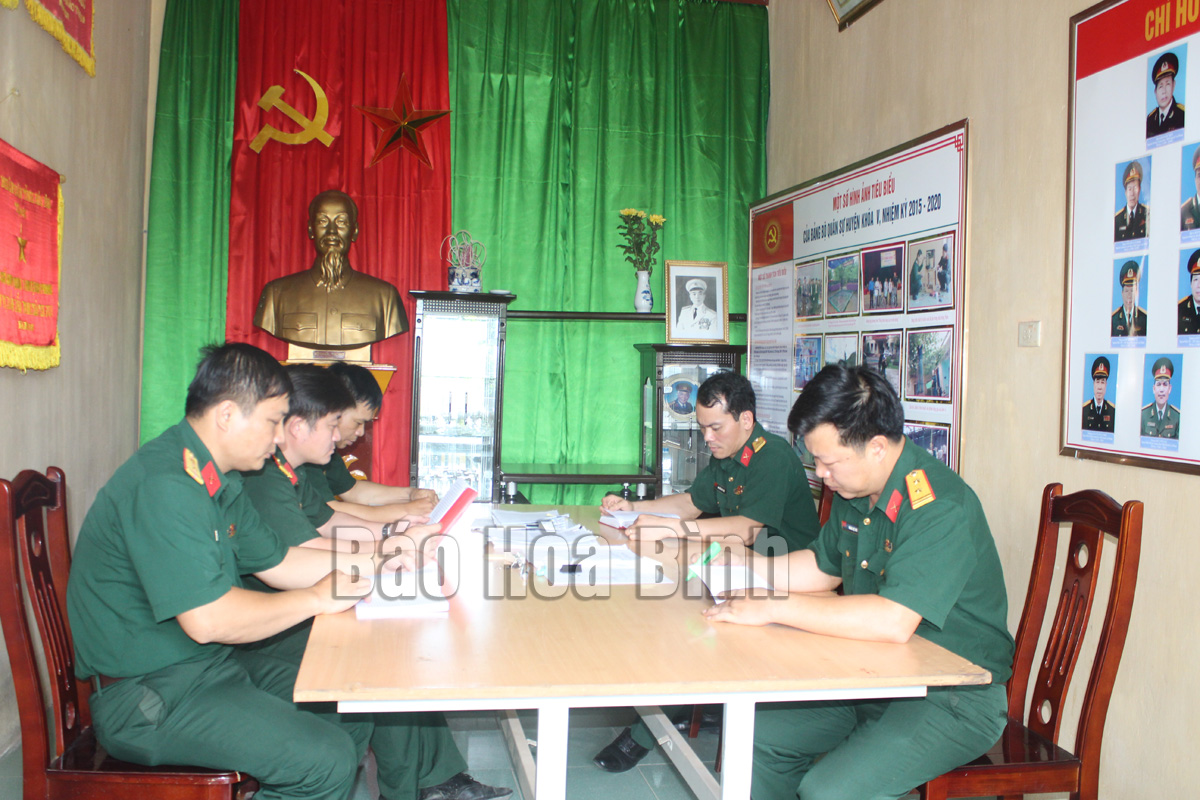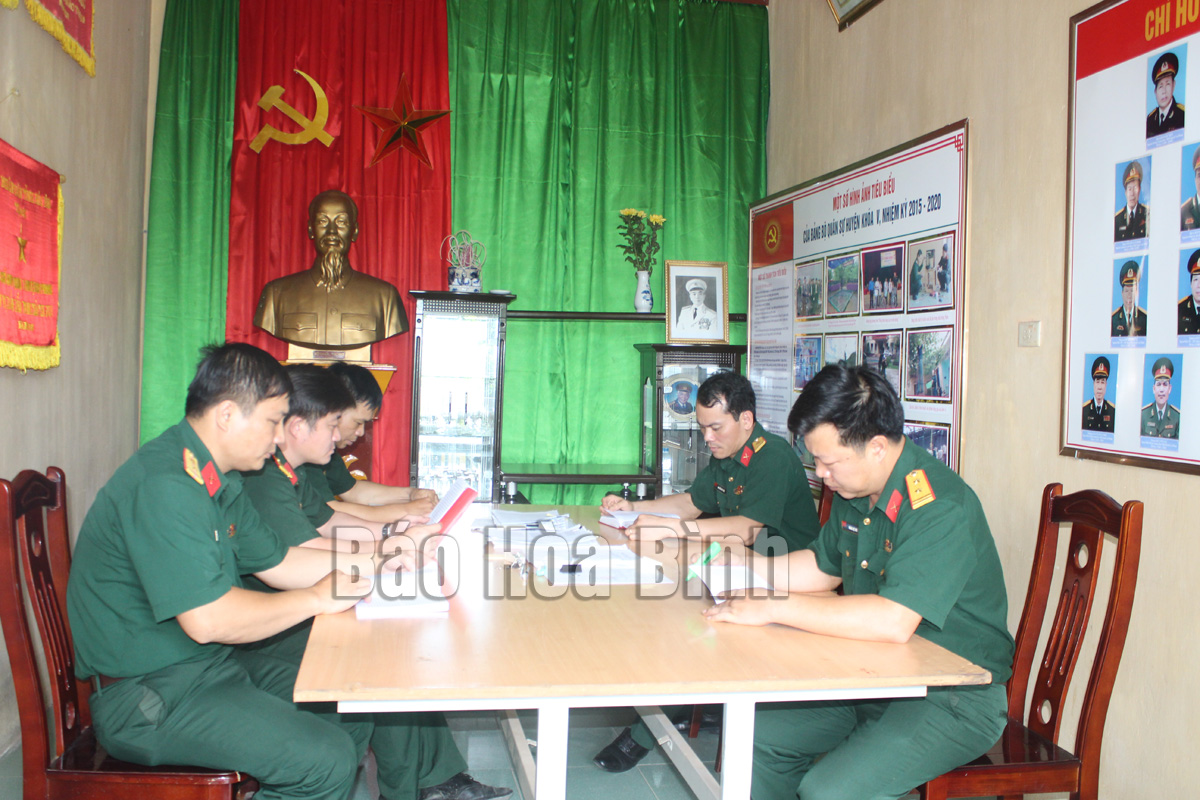


The Association for Study Promotion at all levels have been coordinating with the related units to synchronously implement the solutions to build and improve the quality of the study models on the principle of "easy to do first, difficult to do later”, "experiment to do first, and then replicate”. They have been focusing on propaganda, creating a unified system and consensus among the cadres, the members and the classes of the people.

The members of the Association for Study Promotion of Cao Phong District have been constantly studying and improving the qualifications.
Mr. Quach The Tan, the Chairman of the Provincial Association for Study Promotion said: Up to now, the movement of building the study models has developed both in breadth and depth, spreading, encouraging the officials, the members and the people to actively study, contributing to improving the quality of human resources of the province. Many models have been built and implemented in the localities, and positive results have initially been achieved. The typical models are: "Learning family contributing to building a learning society at the grassroots” in Yen Thuy district; "The Learning community” in Hoa Binh city; "Replicating a typical community learning center” in Lac Son district;…
Implementing the pilot implementation of the model of "Learning Citizens”, "Learning Units” in 2020, the Provincial Association for Study Promotion has selected 3 district-level units (Yen Thuy, Tan Lac, Hoa Binh City) and 3 Departments for Study Promotion (The Provincial Women's Union, Hoa Binh College of Economics and Technology, Thanh Bien Electronics and Telecommunications joint Stock Company). They participated in 6 months (from April to September 2020) with 2,043 registered citizens. As a result, the number of citizens reached 985 people (accounting for 48%). From October 2020, the Provincial for Promoting Education continueD to choose 4 district-level units (Cao Phong, Yen Thuy, Lac Thuy, Hoa Binh city) to pilot the models of "Learning Citizens” according to new criteria with 368 registed citizens.
It is encouraging that the results of building study models have exceeded the target of Plan No. 37/KH-UBND of the Provincial People's Committee. In which: there are 163,240 learning families, reaching 78.5% (surpassing 18.5%); 1,377 learning family lines, reaching 61.5% (surpassing 21.5%); 1,318 learning communities (villages), reaching 88.9% (surpassing 38.9%); 651 study units, reaching 86.4% (surpassing 36.4%). The achieved results have shown the creative and effective methods of the localities. Most of the models have typical examples, good methods, spreading over many areas.
Looking back on 5 years of implementing Decision No. 281/QD-TTg, the Chairman of the Provincial People's Committee said: The implementation of Decision No. 281 has had a great impact on improving the people's intellectual standards, training human resources, contributing to the economic, cultural and social development in the locality, especially for the movement of building new countryside and civilized cities. The lifelong learning movement has changed the perception and the employment of each family, each family line, each community, each unit and the awareness of the Party Committee, the local government, and the social organizations. The knowledge learned in the educational institutions and self-study has been applied to life, contributing to the economic development, the hunger eradication, the poverty alleviation, the stability in security and order, the preservation of the cultural identity of the community.
At the same time, it has well maintained the rate of achieving universalization of primary and lower secondary education. The Provincial Association for Study Promotion has successfully organized a congress to honor the typical study models associated with the summary of 5 years of implementation of Decision No. 281/QD-TTg in the period of 2016 – 2020 to encourage and honor the typical study models, affirming the efforts of the localities, and at finding the positive solutions to promote the lifelong learning movement at the same time, building a learning society in the next period.